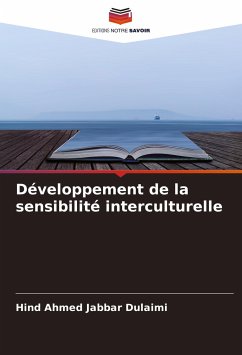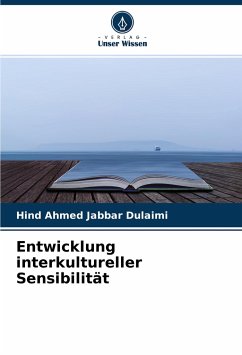
Intercultural Sensitivity Development
A Cross-Cultural Study Between the Arabic and the Germanic Cultures
Versandkostenfrei!
Versandfertig in 6-10 Tagen
29,99 €
inkl. MwSt.

PAYBACK Punkte
15 °P sammeln!
Even though technology is advancing in bringing people together faster and getting information is at the click of a user's finger, people are afraid of each other and do not know what to expect from one another. Stereotyping is mainstream and labeling a whole group of people appears to be the norm. Researchers conduct studies to figure out the differences between cultures and help people understand them to get over these differences. The Arabic and the Germanic cultures are the focus of this book. Globalization demands closer viewpoints and understanding to build a society, which is enriched b...
Even though technology is advancing in bringing people together faster and getting information is at the click of a user's finger, people are afraid of each other and do not know what to expect from one another. Stereotyping is mainstream and labeling a whole group of people appears to be the norm. Researchers conduct studies to figure out the differences between cultures and help people understand them to get over these differences. The Arabic and the Germanic cultures are the focus of this book. Globalization demands closer viewpoints and understanding to build a society, which is enriched by every person's unique perspective. Hence, the importance of social competency in order to facilitate the communication between people from different cultures, as a socially educated person can be easily integrated in international environments. An essential aspect of this book is internationalization barriers and suggested means to overcome them in addition to researching how people develop cultural sensitivity when experiencing other cultures. This development is measured according to the Bennett model and people are classified into six stages based on their viewpoints of other cultures.












